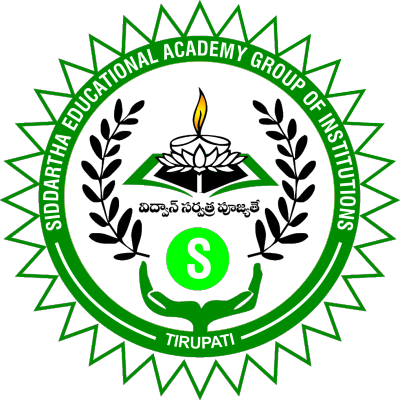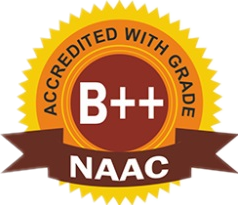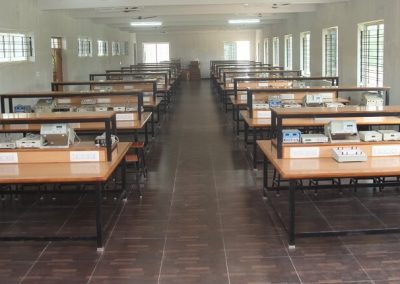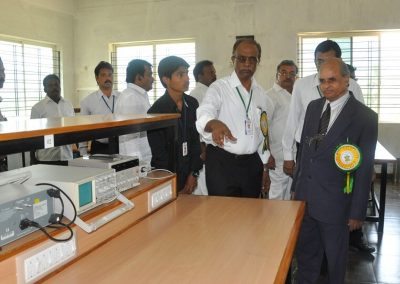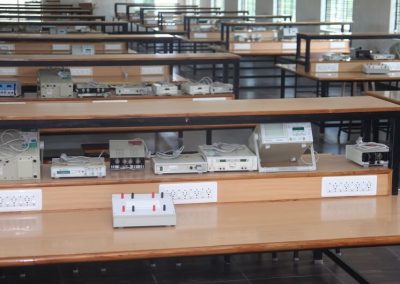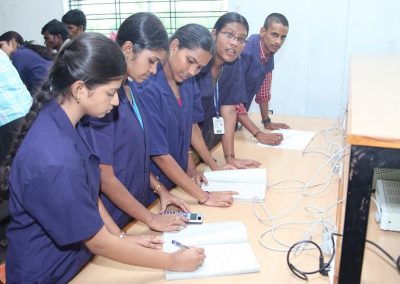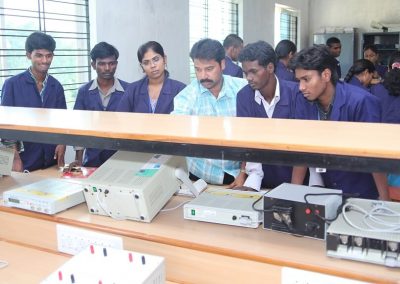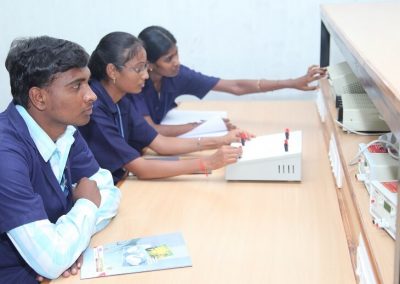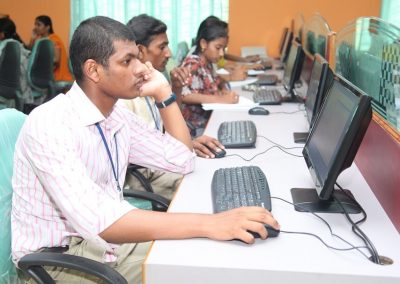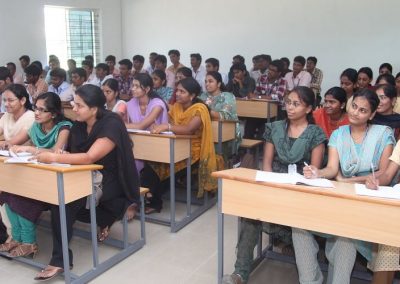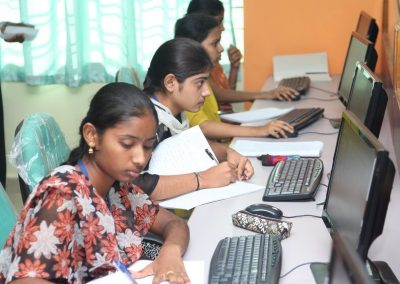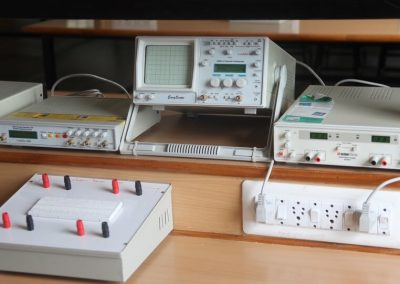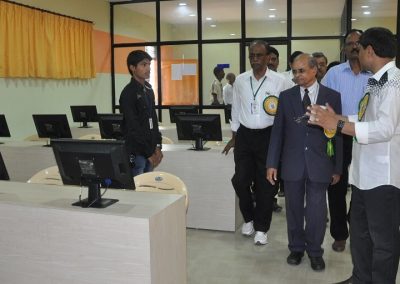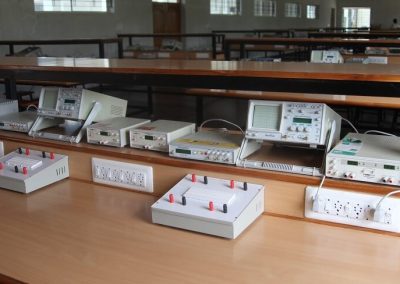Siddartha Educational Academy
Electronics and Communication Engineering
The department has a friendly atmosphere between faculty and students to share knowledge for emerging technologies. The faculty members of the department are not only involved in trending technology research but are also very passionate about the teaching and learning process.
Electronics and Communication Engineering(ECE) was started in the year 2009 for providing quality education and training in the field of Electronics and Communication Engineering. The department offers a Bachelor’s program with an initial intake of 60 students in the year 2009 and increased to 120 students in the academic year 2010 and Master’s programmes in Digital Electronics and Communication Systems (DECS) in the year 2012 and Embedded Systems (ES) in the year 2013 with an intake of 24 students each.
The department has well equipped laboratories, which are upgraded regularly to serve the academic guidelines prescribed by JNTUA, but also facilitate to carry out innovative projects to challenge the fast-changing needs of the society and has spacious classrooms with LCD Projectors with digital technologies, supported by highly qualified and experienced faculty. The department has a friendly atmosphere between faculty and students to share the knowledge for the emerging technologies.The faculty members of the department are not only involved in trending technology research but are also very passionate about teaching and learning process.
The college has SWAYAM NPTEL Local Chapter, the Department faculty was nominated for Single Point of Contact (SPOC) with SWAYAM NPTEL Local Chapter. The Faculty and students of ECE are encouraged to do NPTEL certifications in various subjects.
To match with the current industry requirements and latest developments in the area of specialization, Guest Lectures are arranged from industry experts regularly. Industrial Tours, Technical Workshops, Soft Skill training programs are arranged for the development of leadership and professional skills. Through campus interviews, all eligible students are supported for placements in various industries and companies. Students are encouraged to pursue higher education.
VISION:
The department focus on academic excellence in technical education and research in the area of Electronics and Communication Engineering and to produce well trained, skilled and competent individuals with high motivation to meet the current challenges.
MISSION:
- To procedure high quality of education which enable students to face tasks in the fields of Electronics and Communication.
- To Develop Communication skill, leadership qualities, team work and skills for continuing education among the students.
- To provide amenities and environment to develop the spirit of innovation, creativity, and research among students and faculty.
FACILITIES:
The department has spacious and well-equipped laboratories with
- Electronic Devices and Circuits
- Basic Simulation
- Electronic Circuit Analysis
- Analog Communication Systems
- Digital Communication Systems
- IC Applications
- Microprocessors & Microcontrollers
- Digital Signal Processing
- Microwave and Optical Communication
- VLSI & Embedded Systems
- Electronics & Communication Engineering Workshop
| Program Educational Objectives (PEOs) | |
| PEO1 | Be cognizant of fundamental engineering concepts and contemporary problem solving capabilities to pursue higher studies, confront the issues of industry and society. |
| PEO2 |
Have the ability to identify, understand, analyze, design and intellectually adept the modern tools to solve engineering problems for their Successful technical and entrepreneurial career. |
| PEO3 |
Exhibit leadership skills, organizing capability, presentation skills and opportunities to work as a team on multidisciplinary projects with effective communication skills. |
| PEO4 | Inculcate responsibility, accountability, multidisciplinary approach with ethical values for professional development and showing gratitude towards society |
| Program Outcomes (POs) | |
| PO1 | Engineering Knowledge: Apply knowledge of mathematics, science, engineering fundamentals, and an engineering specialization to the solution of complex engineering problems. |
| PO2 | Problem analysis: Identify, formulate, review research literature and analyze complex engineering problems reaching substantiated conclusions using first principles of mathematics, natural sciences, and engineering sciences. |
| PO3 | Design/development of solutions: Design solutions for complex engineering problems and design system components or processes that meet the specified needs with appropriate consideration for the public health and safety, and the cultural, societal, and environmental considerations. |
| PO4 | Conduct investigations of complex problems: Use research-based knowledge and research methods including design of experiments, analysis and interpretation of data, and synthesis of the information to provide valid conclusions |
| PO5 | Modern tool usage: Create, select, and apply appropriate techniques, resources, and modern engineering and IT tools including prediction and modelling to complex engineering activities with an understanding of the limitations. |
| PO6 | The engineer and society: Apply reasoning informed by the contextual knowledge to assess societal, health, safety, legal and cultural issues and the consequent responsibilities relevant to the professional engineering practice. |
| PO7 | Environment and sustainability: Understand the impact of the professional engineering solutions in societal and environmental contexts, and demonstrate the knowledge of, and need for sustainable development. |
| PO8 | Ethics: Apply ethical principles and commit to professional ethics and responsibilities and norms of the engineering practice. |
| PO9 | Individual and team work: Function effectively as an individual, and as a member or leader in diverse teams, and in multidisciplinary settings. |
| PO10 | Communication: Communicate effectively on complex engineering activities with the engineering community and with society at large, such as, being able to comprehend and write effective reports and design documentation, make effective presentations, and give and receive clear instructions. |
| PO11 | Project management and finance: Demonstrate knowledge and understanding of the engineering and management principles and apply these to one’s own work, as a member and leader in a team, to manage projects and in multidisciplinary environments. |
| PO12 | Life-long learning: Recognize the need for, and have the preparation and ability to engage in independent and life-long learning in the broadest context of technological change. |
| Program Specific Outcomes (PSOs) | |
| PSO1 |
Apply the fundamental concepts of electronics and communication engineering to design a variety of components and systems for applications including signal processing, image processing, communication, networking, embedded systems, VLSI and control system |
| PSO2 |
Select and apply cutting-edge engineering hardware and software tools to solve complex Electronics and Communication Engineering problems |
| PSO3 |
Acquaintance of social and environmental awareness with ethical responsibilities to have a successful career in real-world applications by keeping abreast of the technological changes. |
Admissions
For more details on admissions and seat availability ..contact here
